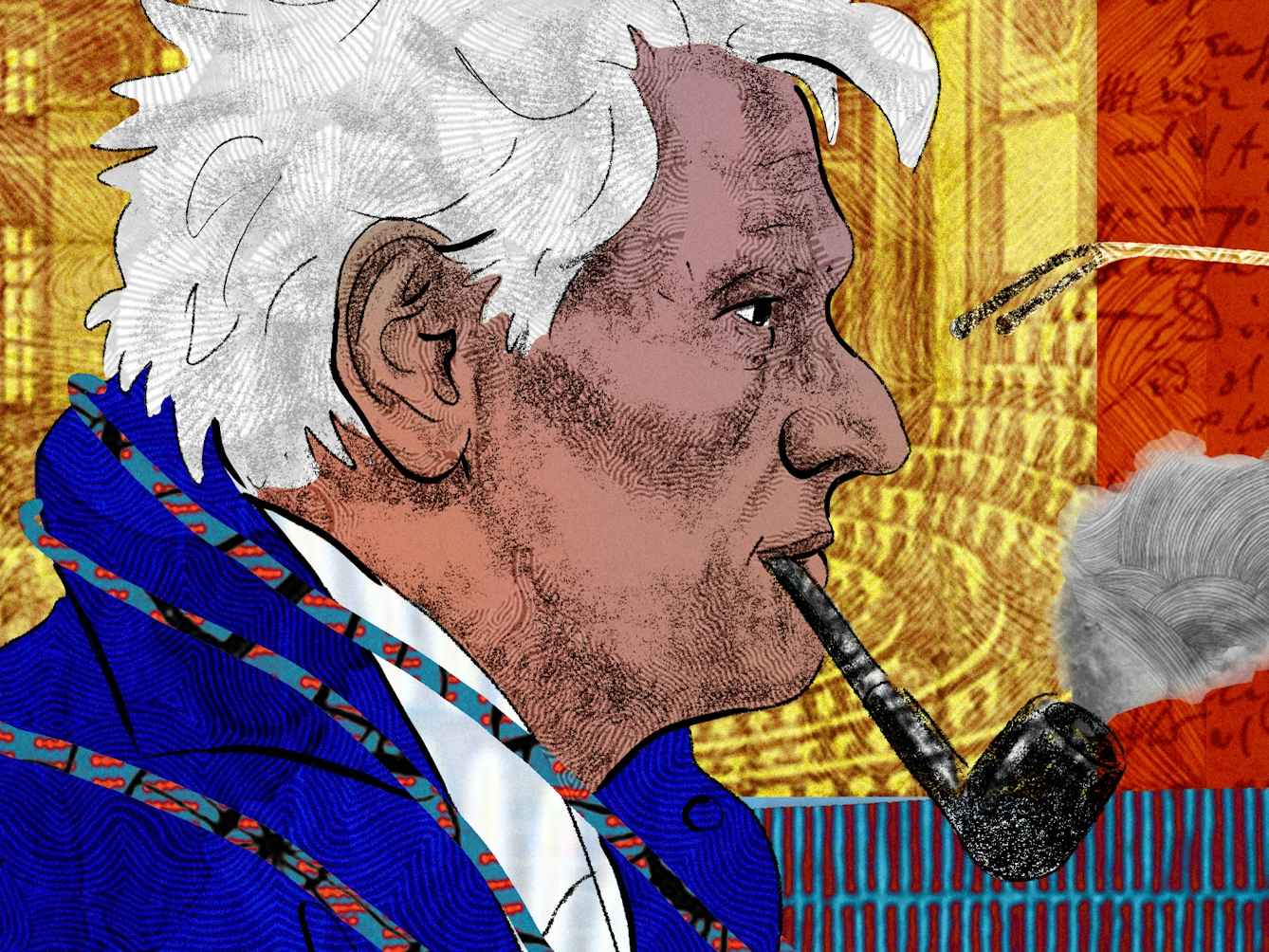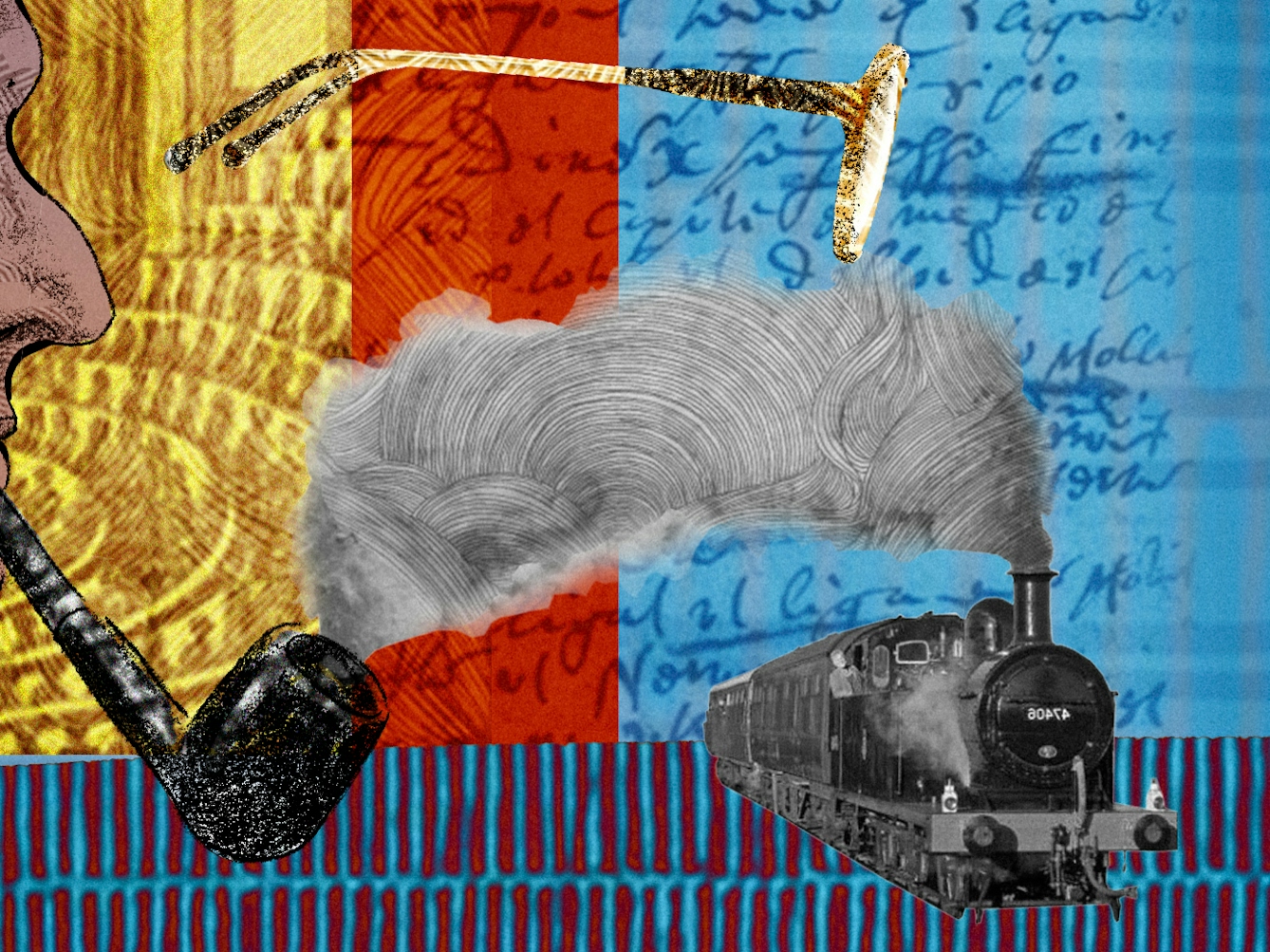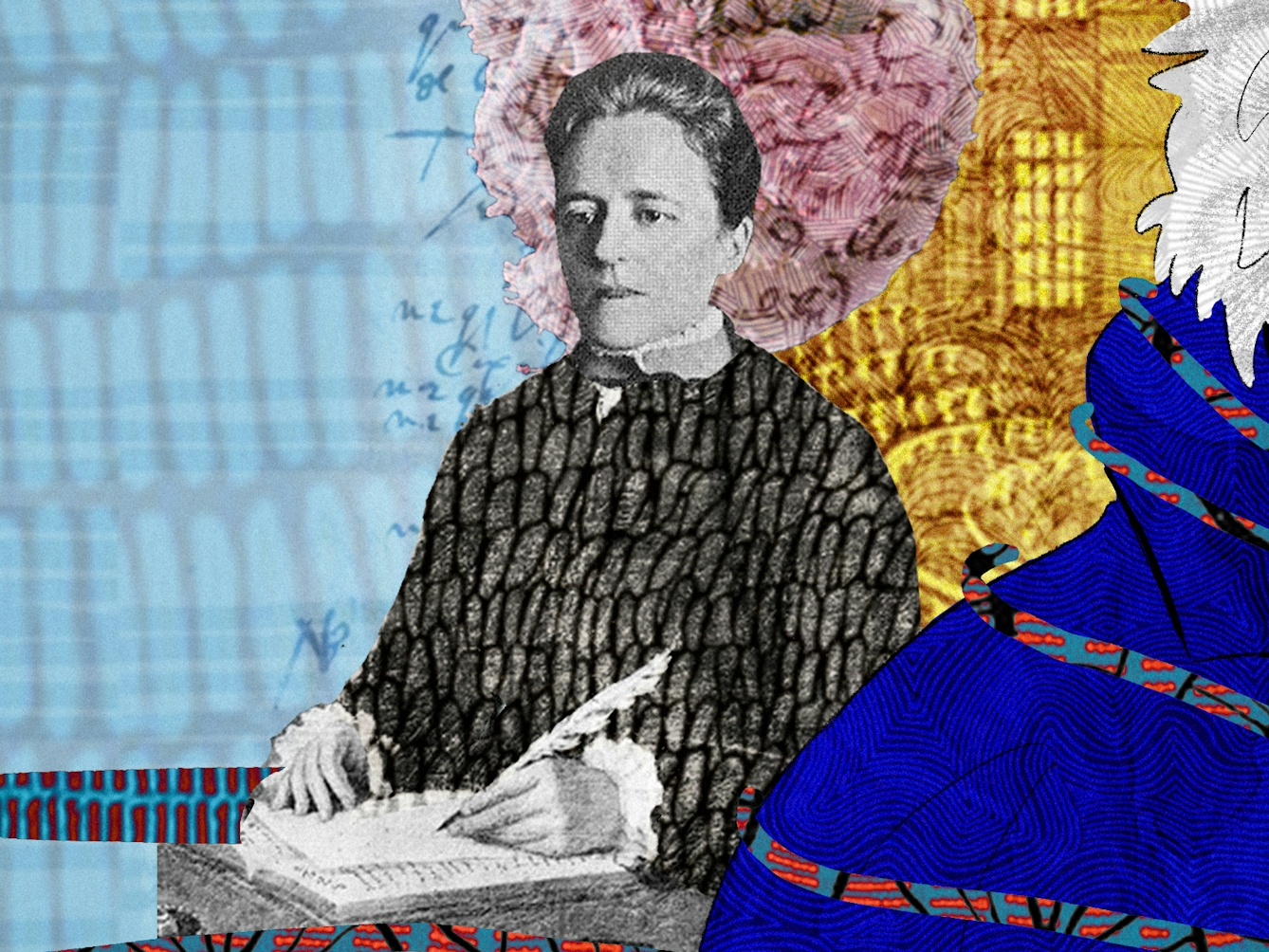Reading Jacques Derrida in lockdown, writer Brian Dillon has been able to imagine both the author’s now impossible-seeming travels, but also his unending worries about his health. Strangely, marooned by Covid-19 restrictions, Dillon’s own hypochondria goes into remission, leading to a blossoming creativity.
Writing in remission
Words by Brian Dillonartwork by Naki Narhaverage reading time 6 minutes
- Article

The philosopher Jacques Derrida, who died of pancreatic cancer in 2004, was by reputable accounts a lifelong hypochondriac. Like Elvis Presley, Derrida lived always with the ghost of a dead brother: one source of his spectral conviction that death was ever imminent. “Life will have been so short,” he liked to say, with a proleptic nod to the future anterior, a tense that is everywhere in his work.
In a seeming contradiction, not uncommon among creative hypochondriacs, Derrida maintained both an excessive anxiety regarding his health and an exhausting schedule of writing, lecturing and travelling. Extravagant productivity was his way, he admitted, of putting the fear of illness and death at bay.
But there was also this simple imperative: he must carry on living, because the work must be done. That work, in the final decades of Derrida’s life, became ever more obviously devoted to the recognition of, and hospitality towards, the Other. So we may wonder at the combination of anxiety for himself and sensitivity or solicitude towards this Other, abstract and actual.
The place where Derrida’s hypochondria is most painfully expressed is his 1980 book ‘The Post Card’: in part a study of Plato and Socrates, in part an epistolary account of Derrida’s long affair with the feminist writer and academic Sylviane Agacinski. Derrida sends postcards to Agacinski, but they spill out into garrulous, unhappy letters.

“The philosopher Jacques Derrida, who died of pancreatic cancer in 2004, was by reputable accounts a lifelong hypochondriac.”
Amid his philosophical reflections and adulterer’s agitation, a constant refrain about his mental and physical ill-health, his apprehensions of the worst. There are references to clinics, hospitals, X-rays and biopsies, as well as minor complaints of middle age, such as his sudden need for reading glasses. And more alarmingly, on 19 July 1979: “I feel very sick, this time it’s the end, I feel it coming.”
A period of grace
I have been reading, more or less at random, portions of ‘The Post Card’ during lockdown. Among its now exotic, almost novelistic pleasures: the repeated detailing of Derrida’s travels, the places he has been and how he moved between them. A plane from Paris to New York, a train from New York to New Haven, or from Paris to Geneva – unthinkable. But also his insistence on the category of remission, in the context of his relationship with Agacinski.
They have been apart, they see each other again, and the meeting constitutes ‘a remission’. Of what, from what, in what? Remission staves off the inevitable end of the affair; it is a chance to meet, but also to part and therefore to write to each other.
A recurring hypochondriac fantasy, at least for some artists and writers, is that catastrophic illness, when it comes, as assuredly it must, could include or allow some period of remission.
Remission, rémission: in both English and French, the word and its close relations (remiss, remit, remittance) describe a similar range – of what? Movement? Stasis? Lapse? Adventure? When an illness remits, we mean it is in abeyance and has even gone into reverse; it has loosened or relinquished its hold on the present, but perhaps not on the future: the disease is only in remission.

“Derrida maintained both an excessive anxiety regarding his health and an exhausting schedule of writing, lecturing and travelling.”
Treatment, or chance, or the predictable course of a disease, has bought the patient a little time, a period of grace, pardon, indulgence. Best use it wisely, or to the full: it will always have been so short, too short. (In this sense, ‘remission’ would be simply another name for ‘life’.)
A recurring hypochondriac fantasy, at least for some artists and writers, is that catastrophic illness, when it comes, as assuredly it must, could include or allow some period of remission, when it might be possible to compose and conclude a final work. But this absurd, not to say narcissistic projection obscures a larger, more deluding (but maybe more productive) feature of the hypochondriac imagination.
This is the idea that illness itself is a kind of remission, a falling away from life but an artistic opportunity. Certain models present themselves. The diarist Alice James, using her diagnosis of breast cancer to indulge her graphomania: “To him who waits, all things come!” Or the bedridden patient (is it flu or is it despair?) imagined by Virginia Woolf in her essay ‘On Being Ill’: freed from the strictures of logic, her mind drifting about among poems and clouds.
Hypochondria in abeyance
Lately it is life itself that has gone into remission: stayed, hindered, suspended. A year ago, in the first lockdown, I surprised myself by hardly worrying about my own succumbing to the virus – hardly worried, that is, beyond what seemed rational scruples and sanctioned precautions. A lifetime of distracting and sometimes debilitating hypochondria, and then – nothing. A void in which the only thing to do was write.
I quickly finished a book that had been delayed by many months, and my being productive under lockdown became a way to define myself, no doubt also to weather lockdown’s real rigours. But this remission could not last: I had mistaken the fleetingly useful absence of life for life itself, imagined this was a time without time, a history without history. (Or rather, I thought history was only happening elsewhere, to those who could not refuse it.)

“A recurring hypochondriac fantasy is that catastrophic illness could allow some period of remission. Certain models present themselves. The diarist Alice James, using her diagnosis of breast cancer to indulge her graphomania.”
In time – because we are always in time – all my anxieties about the failing body returned, this time with the added complication that writing had become (and remains) harder, slower, more punishing, less absolving.
My dictionary tells me that “remittance man” was once the name for an exiled individual who lived on funds remitted from home, usually in the wake of some disgrace requiring his permanent banishment: the phrase denotes a type of rootless dependence, shame, secrecy.
The remittance man receives remittances but has also, in a way, been himself remitted or stalled. He lives now at a distance, telegraphically – as many of us have learned to do in the past year. But not all of us, not in the same fashion or degree. Some have learned to perform our mental and physical unease with this distance, but it is in many ways preferable to the enforced proximity of many workers, patients, prisoners, those living in the interim of an asylum system.
I began this essay in Ottawa, in quarantine, and finish it in London, vaccinated. Hoping to put my own worries behind me, trying to find again the rhythm of my writing, I walk through the city and time, and again pass by the kind of little store (which has been open all the while) that advertises to its immigrant customers a remittance service, the ability to remit money: that is, to send it home.
For some people, there has been no remission, no let-up in work or risk, no compartmentalising of fears. The hypochondriac knows this and doesn’t know it at the same time, acknowledges the universality of illness and death but remains trapped in his own “radiant narcissism” (as an indiscreet friend of Derrida’s put it). How to give up this self-involved state and also send news of hypochondria’s knowledge, sympathy, wisdom – extending it from self to Other? Remission also means the relinquishing of a claim.
About the contributors
Brian Dillon
Brian Dillon’s ‘Tormented Hope: Nine Hypochondriac Lives’ was shortlisted for the inaugural Wellcome Book Prize in 2009. His other books include ‘Suppose a Sentence’, ‘Essayism’ and ‘In the Dark Room’. He is Professor of Creative Writing at Queen Mary University of London.
Naki Narh
Naki is an artist of Ghanaian descent from two homes, Accra and London. Her work draws inspiration from quintessentially Ghanaian tropes and concerns: explorations of self and identity, social and personal conscience. She loves to work with abstract lines, portraits, colour and patterns. She works in ink and acrylic on paper, digital painting and canvas. Explosions of colour and patterns mark her rapidly evolving signature style. Her love for art and architecture are more than expressions of self: they represent an amalgam of all that has moulded her themes and style of painting. They are an assimilation of the kaleidoscope of cultural and structural vibrancy and vitality of a life spent immersed in distinctly different cultures.

